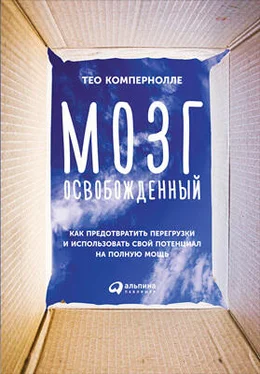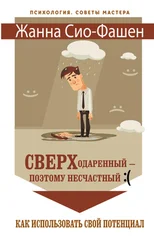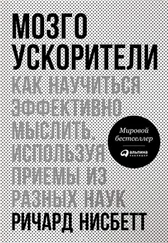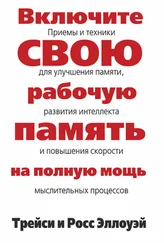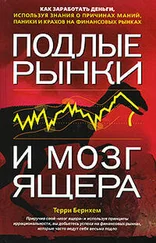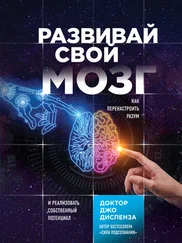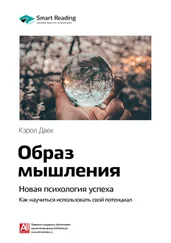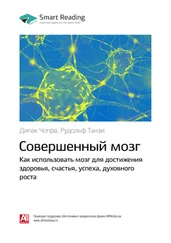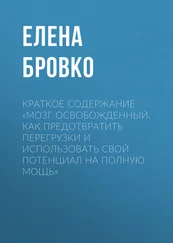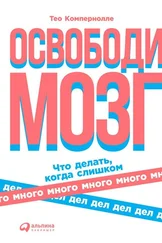http://www.oivo.beDenise Van den Broeck 2010.
Getting plugged in: An overview of Internet addiction. Caroline Flisher.
Journal of Paediatrics and Child Health. Volume 46, Issue 10, Oct. 2010, pp. 557–559.
The choice to text and drive in younger drivers: Behavior may shape attitude. Paul Atchley, Stephanie Atwood,Aaron Boulton. Accident Analysis & Prevention. Volume 43, Issue 1, Jan. 2011, pp. 134–142.
College students’ prevalence and perceptions of text messaging while driving. Marissa A. Harrison. Accident Analysis & Prevention. Volume 43, Issue 4, July 2011, pp. 1516–1520.
Adriana Bianchi and Dr. James G. Phillips. CyberPsychology & Behavior. February 2005, 8(1), pp. 39–51.
Digital natives. Sue Bennett. 2012 University of Wollongong Bennett, S. (2012). Digital natives. In Z. Yan (Eds.), Encyclopedia of Cyber Behavior: Volume 1 (pp. 212–219). United States: IGI Global.
Digital natives: where is the evidence? Helsper, Ellen Johanna, Eynon, Rebecca. British Educational Research Journal. June 2010, Vol. 36 Issue 3, pp. 503–520.
The 'digital natives’ debate: A critical review of the evidence. S Bennett. British journal of educational technology: the journal of the National Council for Educational Technology 2008. 0007–1013. 39(5), pp. 775.
Digital natives: where is the evidence? Helsper, Ellen Johanna, Eynon, Rebecca. British Educational Research Journal. June 2010, Vol. 36 Issue 3, pp. 503–520.
Getting plugged in: An overview of Internet addiction. Caroline Flisher. Journal of Paediatrics and Child Health. Volume 46, Issue 10, October 2010, pp. 557–559.
The effect of multitasking on the grade performance of business students. Y Ellis. Research in Higher Education Journal. 2010. 1941–3432. 8:1 No A 4 U: the relationship between multitasking and academic performance, Computers & Education, Reynol Junco, Shelia R. Cotten, No A 4 U: Volume 59, Issue 2, Sept 2012, pр. 505–514.
Facebook and texting made me do it: Media-induced task-switching while studying, Larry D. Rosen, L. Mark Carrier, Nancy A. Cheever, Computers in Human Behavior, Volume 29, Issue 3, May 2013, pp. 948–958,
In-class multitasking and academic performance, Reynol Junco, Computers in Human Behavior, Volume 28, Issue 6, Nov. 2012, pp. 2236–2243.
Female College Studentsme 28, Issue 6, Academic Outcomes. Results From a Longitudinal Cohort Study. Jennifer L. Walsh. Robyn L. Fielder. Kate B. Carey. Michael P. Carey. Emerging Adulthood, 26 March 2013.
No A 4 U: The relationship between multitasking and academic performance. Reynol Juncoa, Shelia R. Cotten. Computers & Education. Volume 59, Issue 2, Sept 2012, pp. 505–514.
The Wired Generation: Academic and Social Outcomes of Electronic Media Use Among University Students. Wade C. Jacobsen, B.S., and Renata Forste, Ph.D. CYBERPSYCHOLOGY, BEHAVIOR, AND SOCIAL NETWORKING. Volume 14, Number 5, 2011.
Facebook and texting made me do it: Media-induced task-switching while studying, Larry D. Rosen, L. Mark Carrier, Nancy A. Cheever, Computers in Human Behavior, Volume 29, Issue 3, May 2013, pp. 948–958.
Electronic Media Use, Reading, and Academic Distractibility in College Youth. Laura E. Levine, Ph.D., Bradley M. Waite, Ph.D., And Laura L. Bowman, Ph.D. Cyberpsychology & Behavior. Volume 10, Number 4, 2007.
The laptop and the lecture: The effects of multitasking in learning environments. Helene Hembrooke and Geri Gay. Journal of Computing in Higher Education. Volume 15, Number 1, 2003.
In-class laptop use and its effects on student learning. Carrie B. Fried.Computers & Education. Volume 50, Issue 3, April 2008, pp. 906–914.
Facebook® and academic performance Paul A. Kirschner, Aryn C. Karpinski. Computers in Human Behavior. Volume 26, Issue 6, November 2010, pp. 1237–1245.
Too much face and not enough books: The relationship between multiple indices of Facebook use and academic performance. Reynol Junco. Computers in Human Behavior. Volume 28, Issue 1, Jan 2012, pp. 187–198.
Distracted: Academic Performance Differences Between Teen Users and Non-Users of MySpace and Other Communication Technology. Tamyra A. PIERCE, Roberto VACA, 2000.
The Wired Generation: Academic and Social Outcomes of Electronic Media Use Among University Students. Wade C. Jacobsen, B.S., and Renata Forste, Ph.D. cyberpsychology, behavior, and social networking. Volume 14, Number 5, 2011.
Generation M. Media in the Lives of 8– to 18-Year-Olds. Victoria J. Rideout, M.A.Ulla G. Foehr, Ph.D.and Donald F. Roberts, Ph.D.A Kaiser Family Foundation Study. Jan 2010. http://myweb.wwu.edu/karlberg/444/readings/GenM2.pdf
Electronic Media Use, Reading, and Academic Distractibility in College Youth. Laura E. Levine, Ph.D., Bradley M. Waite, Ph.D., And Laura L. Bowman, Ph.D. Cyberpsychology & Behavior. Volume 10, Number 4, 2007.
Influence of Social Media on the Academic Performance of the Undergraduate Students of Kogi. State University, Anyigba, Nigeria. Ezekiel S. Asemah, Ruth A. Okpanachi, Leo O.N. Edegoh. Research on Humanities and Social Sciences. Vol. 3, № 12 (2013).
The effect of multitasking on the grade performance of business students. Y Ellis, B Daniels, A Jauregui – Research in Higher Education Journal, 2010 – w.aabri.com
Distracted: Academic Performance Differences Between Teen Users and Non-Users of My Space and Other Communication Technology. Tamyra A. Pierce. http://www.iiisci.org/journal/CV$/sci/pdfs/E214BL.pdf
The Laptop and the Lecture: The Effects of Multitasking in Learning Environments. Helene Hembrooke and Geri Gay. Journal of Computing in Higher Education. Fall 2003, Vol. 15 (1).
Laptop und Internet im Hӧrsaal? Wirkungen und Wirkungsmechanismen für evidenzbasierte Lehre. M Spitzer, Nervenheilkunde 32 (2013), 805–812.
Distracted: Academic Performance Differences Between Teen Users and Non-Users of MySpace and Other Communication Technology. Tamyra A. PIERCE. http://www.iiisci.org/journal/CV$/sci/pdfs/E214BL.pdf
Digital Distractions in the Classroom: Student Classroom Use of Digital Devices for Non-Class Related Purposes. Bernard McCoy, Journal of Media Education, October 15, 2013.
Do Action Video Games Improve Perception and Cognition? Walter R. Boot, Daniel P. Blakely, and Daniel J. Simons. Front Psychol. 2011; 2: 226.
Pauline L. Baniqued, Hyunkyu Lee, Michelle W. Voss, Chandramallika Basak, Joshua D. Selling points: What cognitive abilities are tapped by casual video games? Cosman, Shanna DeSouza, Joan Severson, Timothy A. Salthouse, Arthur F. Kramer, Acta Psychologica, Volume 142, Issue 1, January 2013, pp. 74–86.
Media use, face-to-face communication, media multitasking, and social well-being among 8– to 12-year-old girls. By Pea, Roy; Nass, Clifford; Meheula, Lyn; Rance, Marcus; Kumar, Aman; Bamford, Holden; Nass, Matthew; Simha, Aneesh; Stillerman, Benjamin; Yang, Steven; Zhou, Michael. Developmental Psychology, Vol. 48(2), Mar 2012, pp. 327–336.
http://news.stanford.edu/news/2012/january/tweenage-girlsmultitasking-012512.html
Wasting Time Is New Divide in Digital Era. Matt Richtel. International Herald Tribune. 29 May 2012 (источники не проверены).
Generation M. Media in the Lives of 8– to 18-Year-Olds. Victoria J. Rideout, M.A.Ulla G. Foehr, Ph.D.and Donald F. Roberts, Ph.D.A Kaiser Family Foundation Study. Jan 2010. http://myweb.wwu.edu/karlberg/444/readings/GenM2.pdf
Читать дальше
Конец ознакомительного отрывка
Купить книгу
